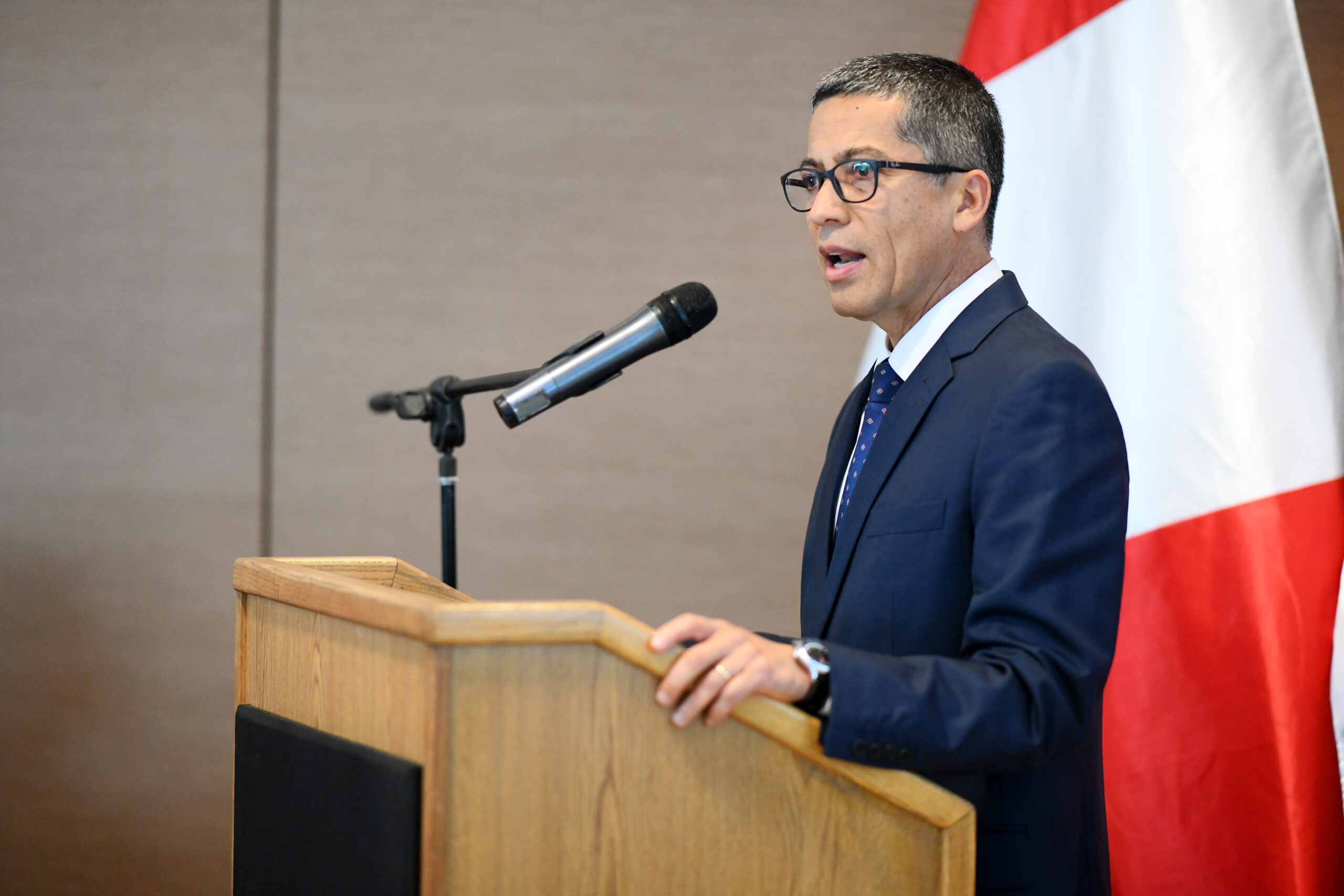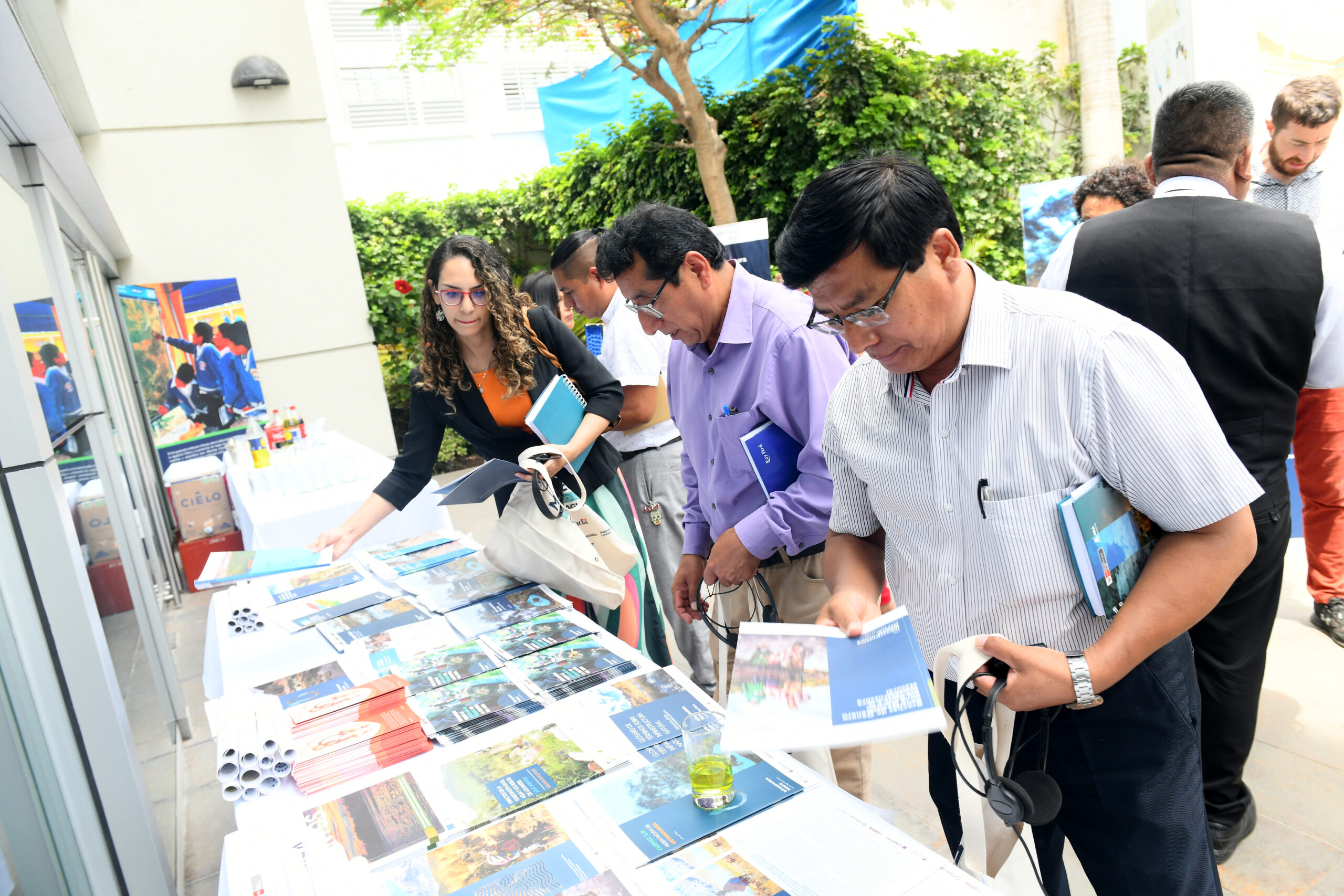January 16, 2024 / The United States Agency for International Development (USAID) and the Government of Canada are pleased to announce a major new commitment to scaling up gender-sensitive investments in natural infrastructure to strengthen water security and climate resilience in Peru.
The Natural Infrastructure for Water Security (NIWS) project, a unique collaboration implemented by a coalition led by Forest Trends and funded by USAID and Canada, has been extended until December 2027. The total expected investment by USAID and Canada in the project is now approximately USD $52.1 million over 10 years. The project will scale up natural infrastructure investments in Peru and drive their implementation on the ground. It will also strengthen the regulatory framework and the capacity of Peruvian institutions to continue their extraordinary global leadership on investing in natural water infrastructure.

Investments in natural infrastructure for water security are nature-based solutions to protect, restore, and sustainably manage landscapes. Ecosystem services provided by these landscapes contribute to water security by reducing risks of water scarcity, floods, and landslides. They also provide important co-benefits, such as carbon sequestration, biodiversity conservation, and sustainable livelihoods for communities.
Peru offers a remarkable model for scaling up nature-based solutions for water and climate resilience. In the last 15 years, Peru’s drinking water sector has increased commitments for nature-based solutions investment from zero to over $50 million. Now, Peru plans to invest over $200 million in natural infrastructure to mitigate risks of floods and landslides across Peru. A key objective of the NIWS project has been ensuring that these commitments make their way to projects on the ground. Providing access to a robust portfolio of projects that are “ready to go” creates a smoother, quicker path for action.
“Peru is an especially vulnerable country to the impacts of climate change. The United States, through USAID, work with Peruvian leaders and partners, from national ministries to local communities, to develop and implement innovative solutions to address these impacts with a key focus on natural infrastructure,” said John McNamara, Chargé D’Affaires in Peru.
“Through NIWS, we have strengthened the enabling conditions, the information and tools, and the portfolio of projects that will allow Peru to continue to demonstrate the opportunity that natural infrastructure represents for building climate resilience at scale,” said McNamara.
“Peru offers a case study on how to dismantle barriers to financing local-led, nature-based solutions for climate adaptation. Through strong partnerships, and with local communities at the forefront, we are making tangible progress for advancing effective, sustainable, and gender-sensitive solutions in the fight against climate change,” said Ahmed Hussen, Canada’s Minister of International Development, who visited Peru to strengthen relations between it and Canada, and promote the joint efforts spearheaded by Canada and USAID to fight climate change.
“As nature-based solutions are increasingly recognized as a critical part of responding to today’s water and climate crises, other leaders from around Latin America and globally can look to Peru’s experience bringing these solutions to scale,” said Michael Jenkins, CEO and Founding President of Forest Trends.
“We look forward to sharing the strategies, lessons, and tools from this rich experience,” said Jenkins.

In partnership with dozens of public agencies, water utilities, communities, companies, universities, and civil society organizations, NIWS has, since December 2017:
- Developed a portfolio of over 80 natural infrastructure projects valued at over US $370 million with local funders and over 240 local communities, of which $36 million has been mobilized to date;
- Strengthened capacities of institutions and over 5,000 professionals to plan, implement, and communicate the significance of nature-based solutions;
- Developed a suite of new tools to guide the identification, design, and management of effective, equitable, and sustainable natural infrastructure projects;
- Secured the first institutional commitments and policy changes from the leading authorities in Peru’s water sector to address gender gaps in water management; and
- Recognized, trained, and connected over 100 women leaders through the Leadership Program for Women in Water Management.
Key priorities for NIWS over the next 4 years include:
- Continued facilitation of the development and implementation of the portfolio NIWS has developed since 2017, mobilizing at least USD 120 million in new investment and ramping-up private sector participation.
- Documenting the tangible benefits that investments generate, especially for local communities, as well as for important co-benefits like carbon sequestration and biodiversity.
- Strengthening natural infrastructure governance and ensure the sustainability of NIWS’ results by strengthening the capacities of dozens of institutions – from local communities to water utilities and national agencies.
- Increasing the engagement of local populations and women, and continue to generate institutional and regulatory shifts, to support greater equity in the benefits and decision-making on natural infrastructure for water security in Peru.
- Continuing to address gender gaps in natural infrastructure and water governance and strengthen how natural infrastructure investments help to close these gaps.
To achieve these goals, NIWS brings together a prestigious coalition of implementing partners led by Forest Trends, including the Consortium for the Sustainable Development of the Andean Ecoregion (CONDESAN), the Peruvian Society of Environmental Law (SPDA), Descosur, and researchers from Imperial College London.
Viewpoints showcases expert analysis and commentary from the Forest Trends team.
Connect with us on Facebook and Twitter to follow our latest work.
